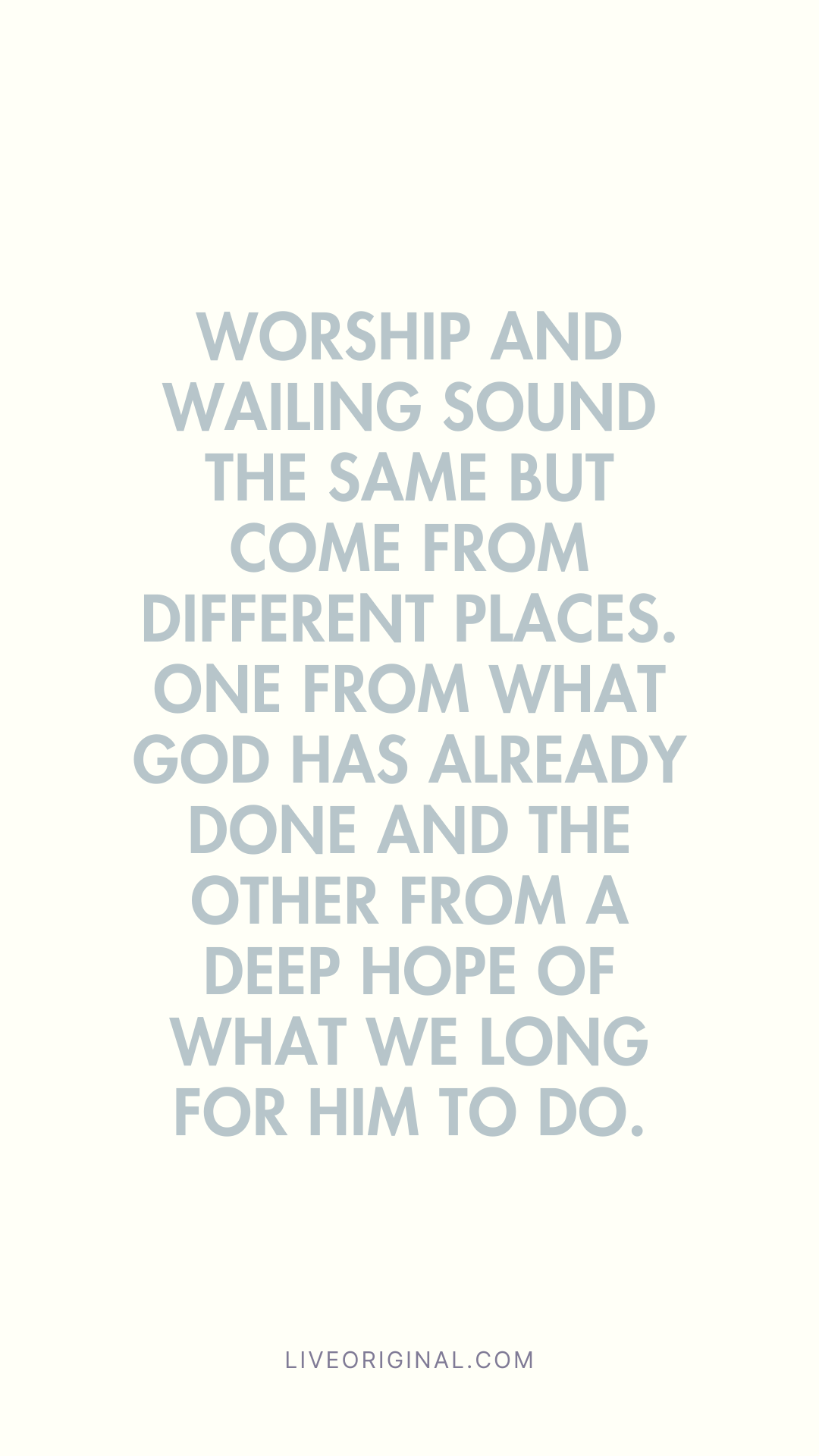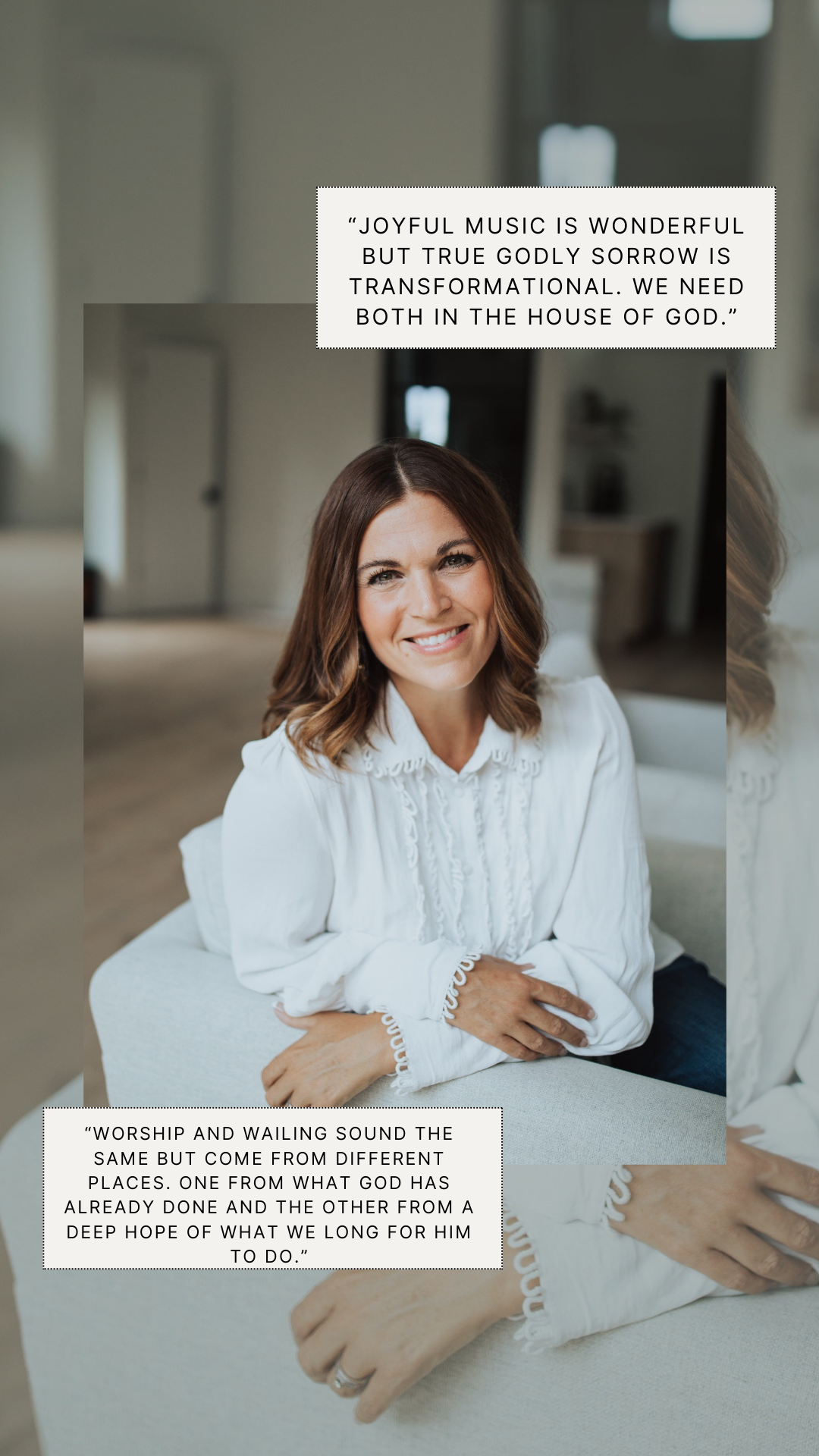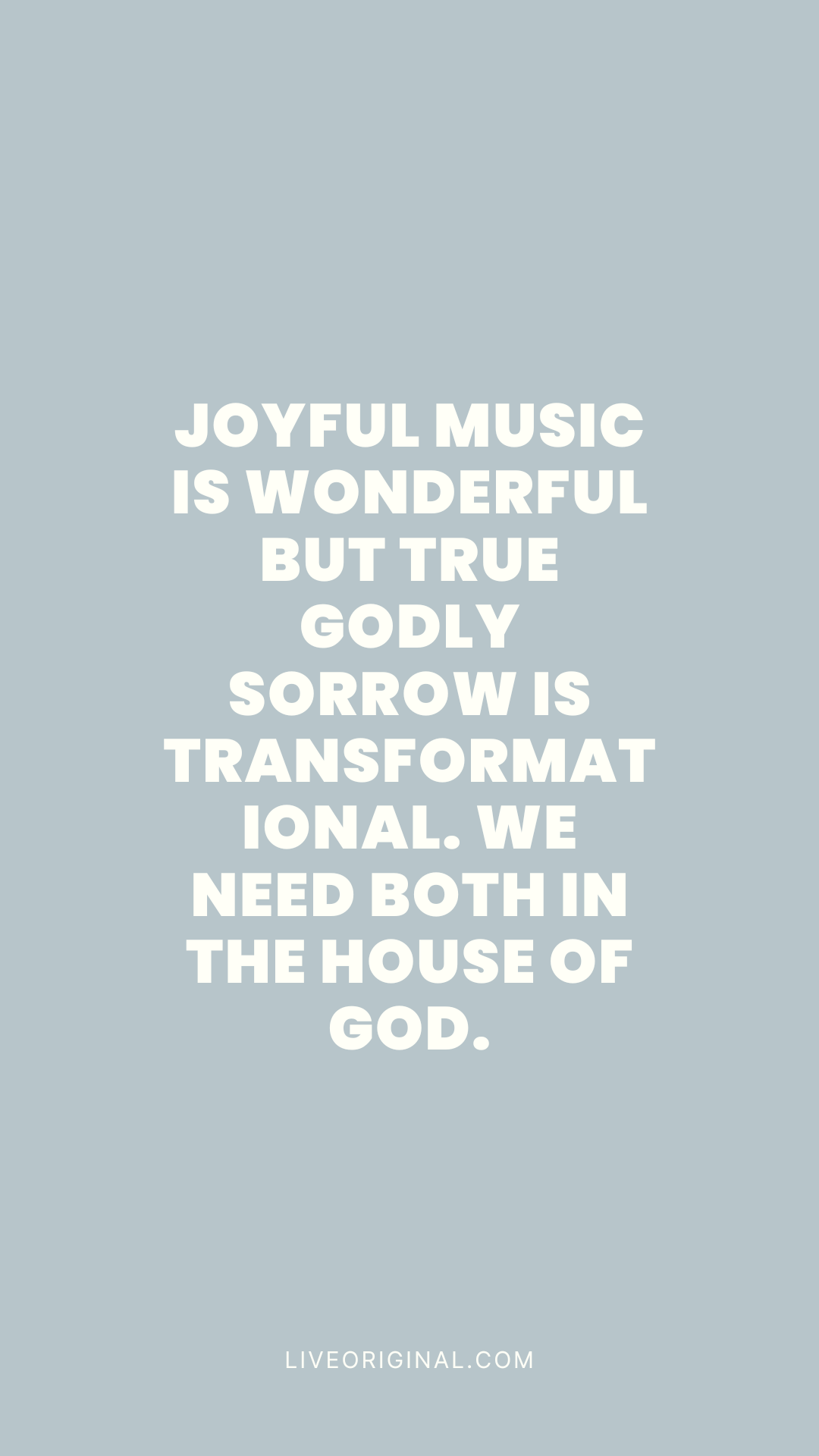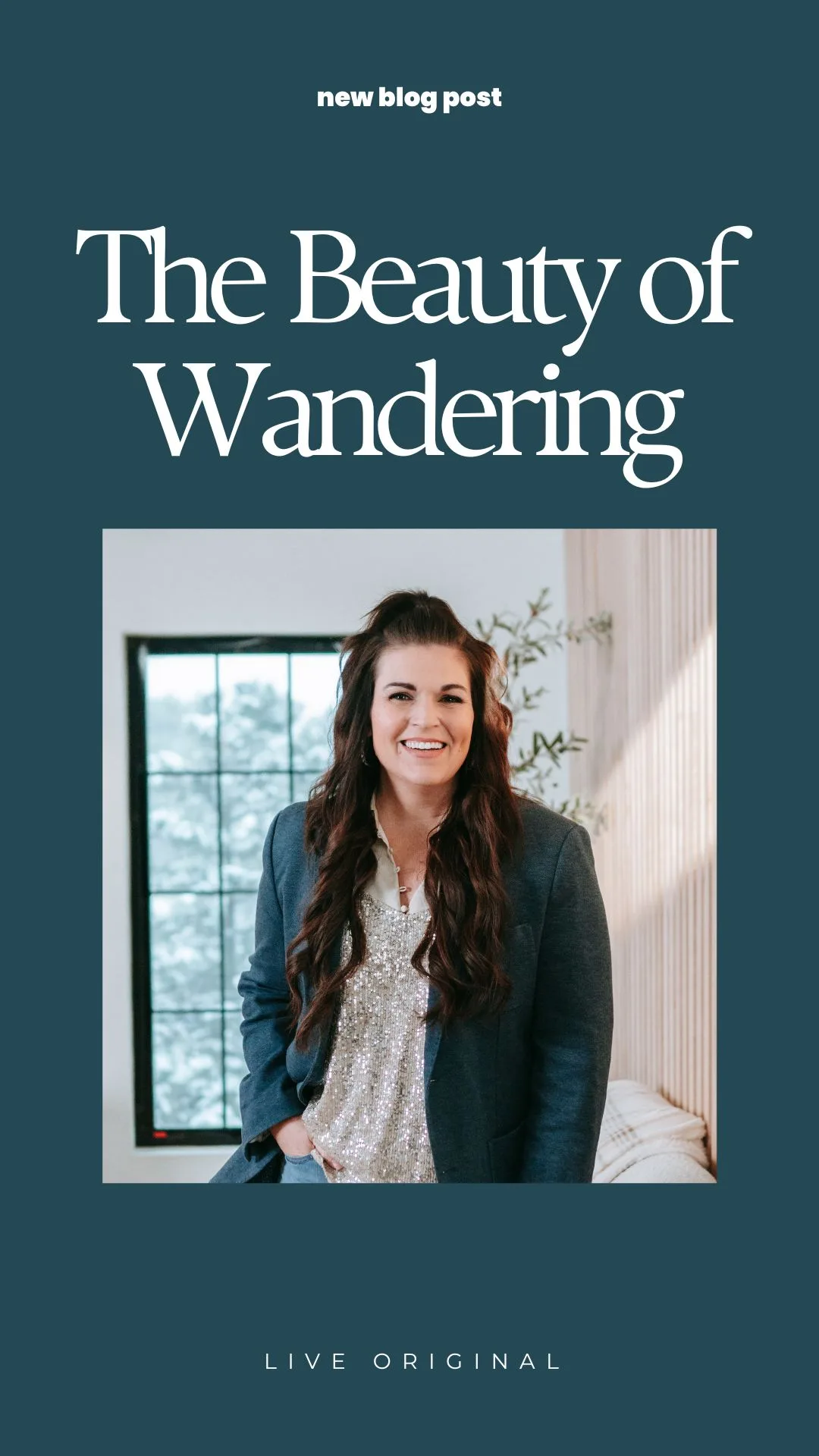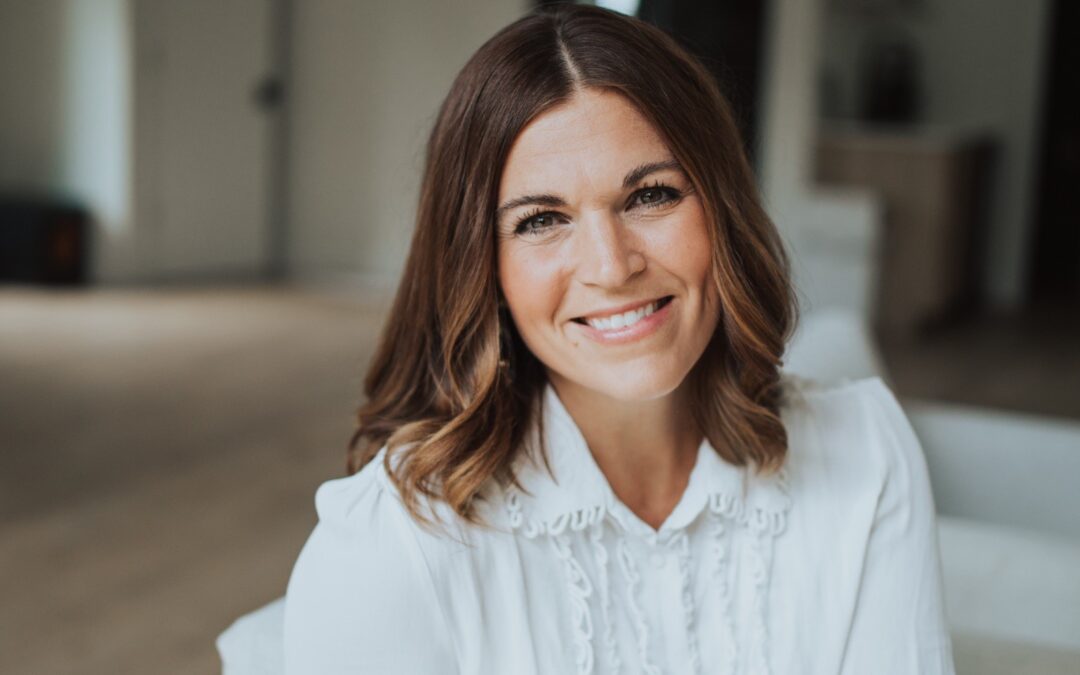
by Natalie Runion | Nov 21, 2024 | Featured, Grief, Hope, LO Library, Perspective, Prayer, Trust
Because sometimes worship and wailing sound the same but I learned they come from two different places. One from what God has already done and the other from a deep hope of what we long for Him to do.
Joyful music is wonderful but true Godly sorrow is transformational. And we need both in the House of God.
Not long ago, our precious Border Collie, Bear, was hit by a truck in our cul-de-sac and his leg was so badly damaged we were forced to amputate. It was only the second week at a brand-new school for my then eleven-year-old, and I knew it would be better for Selah to be in school while we had Bear at the vet hospital. That morning, rather than having her take the bus, we drove the backroads of Kentucky together in silence, her sitting in the front seat. Her little hands were perfectly clasped in her lap as she gazed out the window, her eyes full of tears threatening to fall at any moment.
I grabbed her hand and started thanking God for the gift that Bear was to our family and how God used him to bring us joy and protection and laughter. Right there in our little Toyota SUV, God met my daughter and me in a time of thanksgiving and lament, because God meets us in both expressions of worship. We don’t have to gaslight ourselves into believing everything is always good all the time. Our children need to see us wrestling with God in situations that feel unfair and unkind. They need to hear us praying, weeping, rejoicing, and worshiping in freedom, not fearing what people will think.
In Acts 16:25 we see Paul and Silas sitting in their prison cell and we’re told, “Around midnight Paul and Silas were praying and singing hymns to God, and the other prisoners were listening.”
I don’t know about you, but I struggle with nighttime. During the day I am busy and my thoughts are on the many tasks in front of me, but as soon as my head hits the pillow, I’m a prisoner to regret, fear, and insecurity. As someone who has struggled with anxiety, the midnight hour can be filled with Googling mysterious symptoms ailing my body, rethinking old conversations and scenarios, and waking up to every creak in the house as I beg sleep to find me.
Paul and Silas were in their own literal midnight hour, but rather than worry and focus on their circumstances, they began to pray and worship, and it says in the scriptures that the “other prisoners were listening.” (v25)
What should we take away from this?
Those in bondage to this world are watching us as Christ followers to see how we will respond to the midnight hour.
The cancer diagnosis.
The divorce.
Our prodigal.
The loss of a child.
A season of unemployment.
Financial struggles.
Will we worry or will we worship?
There are sounds we can’t un-hear. For me as a church kid, it was the wailing of saints in the pews begging God to bring home their prodigal. It was praying in living rooms for God to restore a marriage. It was the silent sobs of a mother in her birthing room asking for a miracle. It’s a groan like no other. It’s animalistic, primal, raw, a sound I could identify without looking up.
Because sometimes worship and wailing sound the same but I learned they come from two different places. One from what God has already done and the other from a deep hope of what we long for Him to do.
I remember the first time I distinguished the difference between someone worshiping from a place of gratitude and worshiping from a place of deep sorrow because it woke me up. Yes, joyful music is wonderful but true Godly sorrow is transformational. And we need both in the House of God. Both have changed me.
From far away one might not be able to tell the worship from the wailing, but it reaches the throne of Heaven equally. It’s a sound I’ll never forget. It’s a sound that kept drawing me back into the House of God and into the homes of the saints and it’s possible this sound led me into an early ministry of worship leadership. I got to be part of both the celebration and the transformation, in the lives of the congregation as well as my own.
Holy lament is a song few want to sing, but it’s our worship penned in the dark night of the soul that writes a mournful melody in a minor key. We’re singing over those who have lost, wrestling with anger, contending for peace, waiting for answers, grieving, weeping, suffering.
When the Church worships, lives are changed. We don’t worship because we got the outcome we wanted, the test results we prayed for, or the miracle we felt we were promised, but because God promises that when we worship and pray, he will be among us. Where the Spirit of the Lord is, there is freedom and unity.
May we be a people who worship and wail, shouting His salvation and mourning with sweet brokenness His amazing grace.
—
Excerpted from The House That Jesus Built: Leading Our Churches Back to God’s Original Blueprint © 2024 Natalie Runion. Used by permission of David C Cook. May not be further reproduced. All rights reserved.
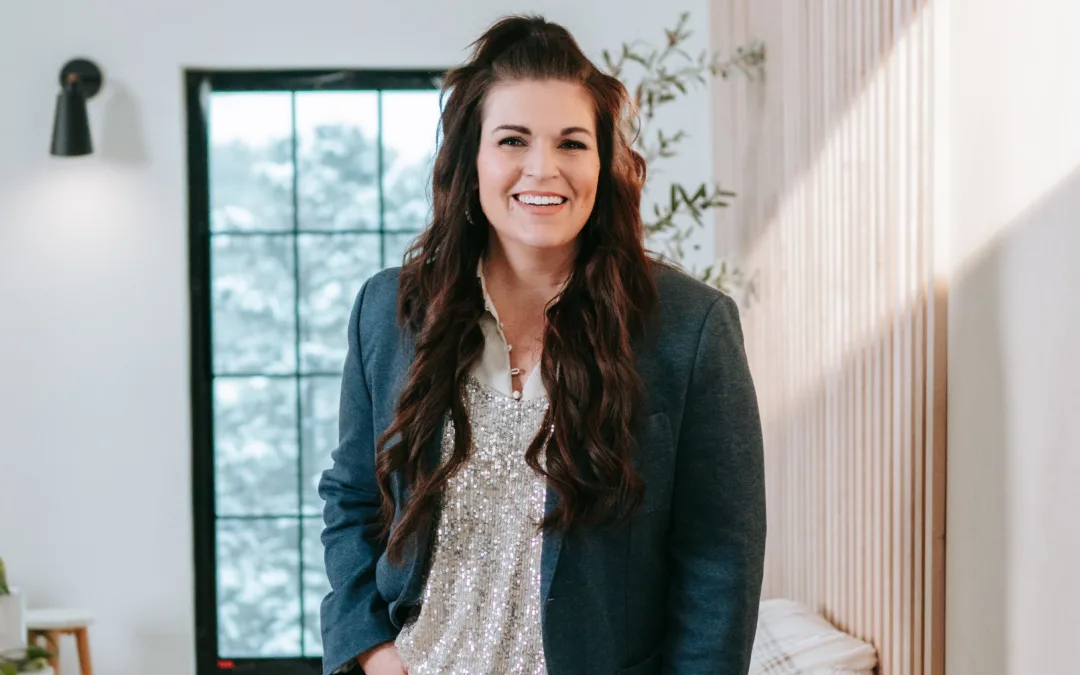
by Natalie Runion | Jul 6, 2023 | Life Advice, Testimonies
By the time I got to college, my struggle with the Church and my faith, like many of my Christian peers, was silent. I wasn’t crying out for help or rebelling to get attention, but every day I was wrestling with big questions that I didn’t have the guts to ask anyone. For the first time in my life, I wasn’t certain of exactly what I believed or why. I wasn’t surrounded by lifelong Christians.
Every day I met people with different religious backgrounds and moral belief systems who aggressively challenged mine, and I was embarrassed when I couldn’t defend why I didn’t drink, sleep with my boyfriend, or cheat on exams.
Because of these new relationships and intentional conversations, I found myself questioning the rules and religious rituals I had adopted growing up simply by association. I felt more loved by perfect strangers than those in my church community back home.
I attended standing-room-only campus events with classmates where topics were debated as students sat in open windows and listened from the lawn. I would leave those gatherings asking really important questions. Why did I believe what I believe? What if I was wrong? What if all these other people who were living without so many rules were actually right? Is heaven real? Is God real? Is the Bible relevant for today’s world? Did God really say that?
For the first time, I was wandering. It was messy, uncomfortable, clumsy, and emotional as I tried to detangle myself from religion and still hold on to the Jesus I knew.
Sometimes, even when others can’t see it, our wandering is the very thing that is meant to lead us home to God. I think of the story in Luke 2:41–52, where Jesus, just a boy, knew he had a call on his life, a mandate, a specific assignment that only he could fulfill, and he found himself on a journey with his parents to Jerusalem for the Feast of Passover. At twelve years old he didn’t need a career day to figure out where his life was headed; he was drawn to the temple and the teachers and he wandered from his parents to sit and learn from those doing the very thing he knew he was called to do.
The whole time Jesus was in the temple, of course, his parents were searching all over for him, assuming he was somewhere among the pilgrims, relatives, or friends. They were furious that he’d run off and they were frantic to find him. People panic when others wander. And yet the passage notes that “the teachers were all quite taken with [Jesus], impressed with the sharpness of his answers” (v. 47 MSG). Those on the outside were looking for a lost Jesus, but those to whom he had wandered welcomed him in. What a validating moment it must have been for Jesus to finally feel like he was sitting among those who understood him! Even these scholars could see that at twelve years old, Jesus had something special and unique.
I think many of us wander off to find our people, who we are, what we believe, and if anyone believes in us. We’re not looking to go rogue; we’re looking to be heard, validated, and understood.
I don’t think any of us start this process of wondering and wandering hoping to get lost. While I’m not suggesting we spend our entire lives in this place, I am suggesting we give ourselves and others grace and time to find the answers we’re looking for, and that we trust God knows exactly where we are.
We are all at different points in our wandering with Jesus. We each have different experiences, unique passions and personalities that impact our journey, and nobody can do this hard and holy work for us. We walk through wrong doors, sometimes by accident and other times by choice, and every single time he meets us on the other side.
He will leave the ninety-nine to find the one.
It’s okay if sometimes we’re the one.
We all wander off from time to time, and God does not give up on us if we’re gone a day or fifty years.
He doesn’t shame us or scold us. He celebrates our return because what was lost has been found.
He still calls us son and daughter.
The good news for you and me is that even in our wandering God has never changed his mind about us. He is so very sure of who we are in him and who he has created us to be, even on the days we feel lost, unheard, or like we’re being held back.
The beauty of wandering is that we find all sorts of things we didn’t expect to find along the way, and the journey becomes a part of our unique story. My own personal wandering would lead me from the classroom back into the sanctuary, where I met some incredible people—some who knew Jesus, some who were getting to know him, and others who were walking away. Part of my journey was finding that I really did love God and the Church, even though I carried scars and wounds that were still actively healing.
I learned to listen to people, really listen to where they were and to help them detangle and unravel from some of the very lies I had believed that had led to my own wandering and wondering. When we as the Church embark on our own faith journey and admit to having our own big questions and doubts, it’s amazing how much grace and patience we carry for those in the middle of their own.
I don’t know where you are in your wandering, but I want you to know that you are deeply loved and seen by God. There are a lot of voices speaking over you as you scroll social media looking for those who will listen to you and validate your season or assignment. Many voices will point fingers at people who hurt you and encourage you to do the same, but I challenge you to look for those who will sit with you and remind you who you are in Christ.
Who are those people you admire? Who walks with Jesus in a way that doesn’t make you feel judged but embraces your part of the journey and wants to join you on the adventure? Who shows you a Jesus who is patient and kind, slow to anger and quick in love? These are the people we look for along the way.
Don’t stop dreaming. Don’t stop wandering.
We’ve got places to go.
Excerpted from Raised to Stay: Persevering in Ministry When You Have a Million Reasons to Walk Away © 2023 Natalie Runion. Used by permission of David C Cook. May not be further reproduced. All rights reserved.
Natalie Runion is an author, speaker, worship leader, songwriter and the founder of Raised to Stay, a ministry for those raised in the church who are finding their own healing, calling and voice in church leadership. Natalie and Tony Runion live with their daughters in Colorado Springs, CO, and they attend New Life Church where Natalie recently served as a pastor. Natalie is the host of the Raised to Stay Podcast and the author of a forthcoming book entitled Raised to Stay: Persevering in Ministry When You Have a Million Reasons to Walk Away. www.RaisedtoStay.com











